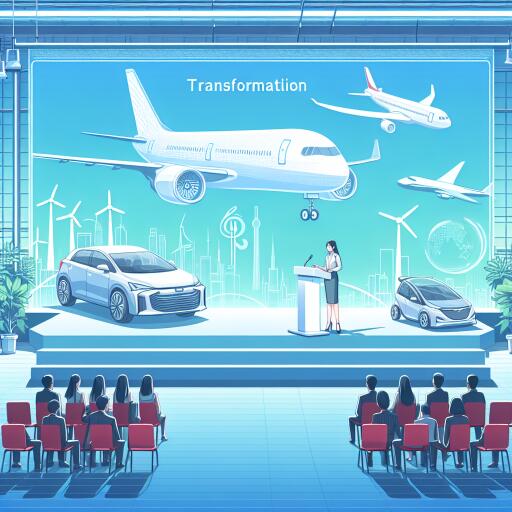
Launch of Project Dedicated to Ecological Transition of Automotive and Aviation Industries
A groundbreaking initiative, marking the second phase of an ambitious project aimed at bolstering the ecological transition in the automotive and aviation sectors, has been inaugurated. This phase is a crucial step toward fostering sustainable development within these industries. With a focus on skill development and capacity building, the project aims to equip national experts with the necessary tools and knowledge to assist companies in evaluating their carbon footprints and integrating comprehensive social and environmental responsibility frameworks.
The overarching objective is to provide substantial support to 65 firms within these sectors, inspiring them to embrace technological advancements that significantly curtail carbon emissions and lessen their environmental impact. The program is spearheaded by the Tunis International Centre for Environmental Technology (CITET) and receives backing from GIZ, under the “Decent Work for a Just Transition” initiative. This special initiative is part of the broader “Partnership for Employment and Support of SMEs in Tunisia” initiative promoted by German economic cooperation.
Key partnerships are integral to the project’s implementation and include collaborations with the Tunisian Automotive Association, the Institut de la Responsabilité Sociétale des Entreprises en Tunisie, the Groupement des Industries Tunisiennes Aéronautiques et Spatiales, the Cluster des Industries Électroniques (ELENTICA), and the Cluster Mecatronic Tunisie (CMT). These collaborations aim to create a holistic approach in addressing the environmental challenges facing the mobility industry.
Through this project, a dedicated team of highly qualified professionals will undergo extensive training in measuring carbon footprints. These experts will be pivotal in guiding businesses within these sectors to adopt and implement practices that are more aligned with environmental sustainability. As a result, the industries are expected to undergo a transformation toward greener operations, thus contributing positively to climate action.
The initial pilot phase of this initiative has already made strides, involving 15 pioneering companies in the sector. The outcomes and insights gathered from this pilot phase are set to be revealed and discussed on February 7, 2025. This presentation will provide an opportunity to reflect on the successes and challenges encountered thus far, and to set the stage for future developments and enhancements in the project’s subsequent phases.
Overall, this project represents a significant advancement in the movement towards reducing the environmental impact of the automotive and aviation industries. By actively engaging and supporting companies to transition towards more sustainable practices, it not only sets a precedent for ecological responsibility but also exemplifies the benefits of collaborative efforts between various stakeholders, including governmental agencies, private sector players, and international partners. Through such concerted efforts, the project hopes to pave the way for a more sustainable future in the transportation and mobility sectors.





Leave a Reply